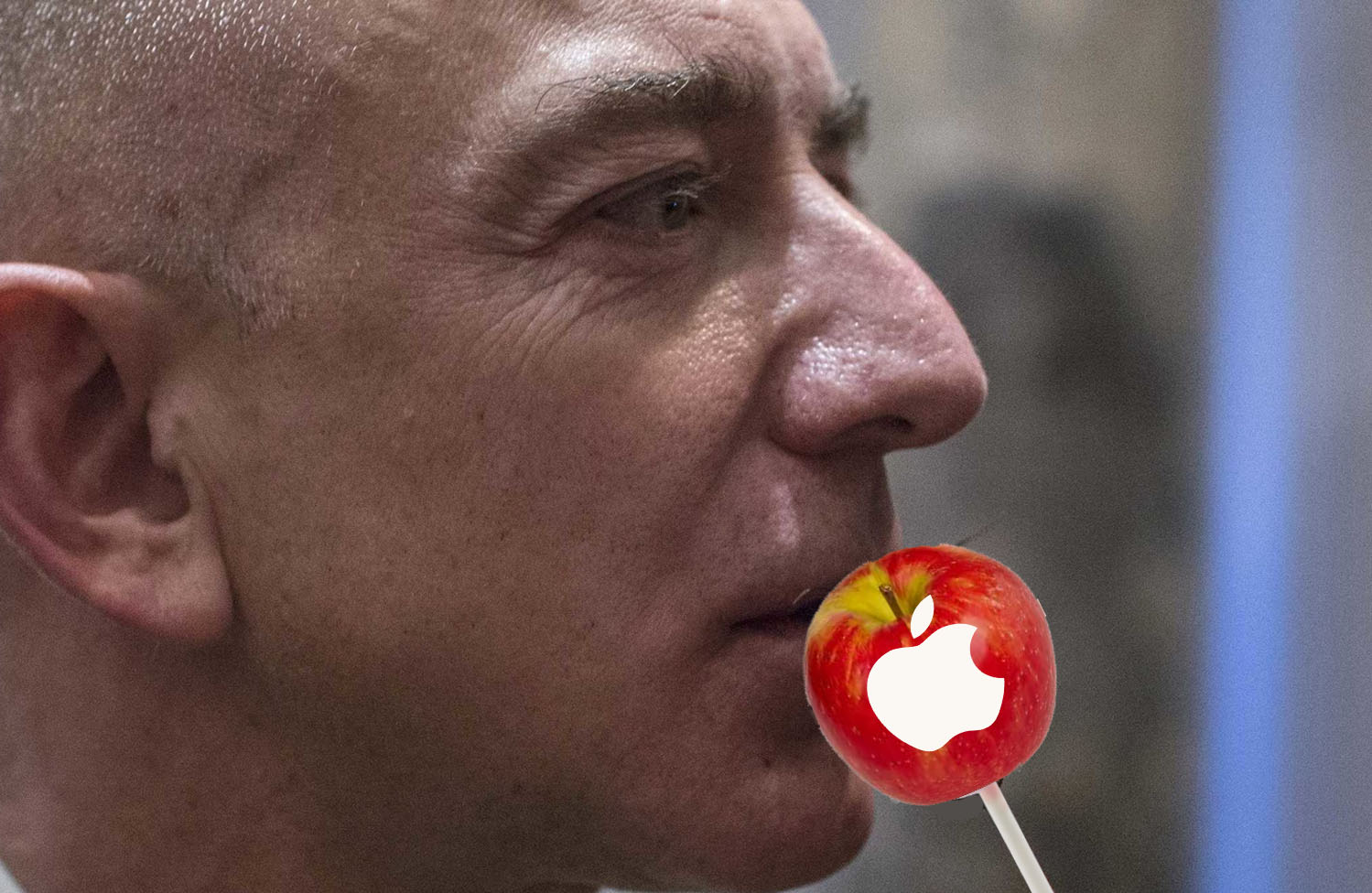Isn’t it wonderful when rivals lay down their swords and work together to defeat evil? What if Thanos used the powers of the infinity gauntlet to work with the Avengers and protect the galaxy? Maybe Spiderman wouldn’t have felt so bad, Mr. Stark. I digress, when two companies recognize the potential of and move forward with collaborative efforts, the results are usually very beneficial for both entities. Amazon Inc. (AMZN) and Apple Inc. (AAPL) announced a partnership of epic proportions on Friday.
Jeff Bezos’ behemoth of an online marketplace indicated that it would start selling iPhone, iPad, Mac computer, Apple Watch, and other Apple (AAPL) products on its website, just in time for the tech craze that usually starts around the holiday season.
“Amazon is constantly working to enhance the customer experience, and one of the ways we do this is by increasing selection of the precuts we know customers want. We look forward to expanding our assortment of Apple and Beats products globally.”
–Official Statement from Amazon to CNBC
Though the collaboration between Apple (AAPL) and Amazon (AMZN) is significant and will undoubtedly catalyze activity in the stock market, the relationship between the two companies hasn’t always been this cohesive. In 2015, Amazon (AMZN) banned the sales of competing for streaming devices, specifically Apple TV, because Apple’s device didn’t “interact well with Prime Video.”
The online retailer not only stopped selling Apple TV’s but sent an email to all sellers on its platform:
“Dear Seller,
…Effective immediately, you may no longer create new listings for these products, and as of 10/29/15, any existing listings for these products will be removed. There will be no adverse impact on your seller account for the removal, but we request that you refrain from relisting removing products…
Sincerely,
Papa Bezos
Eventually, the two companies hashed out their differences and came to an agreement that benefitted their mutual interests — for Amazon (AMZN), this meant the Amazon (AMZN) prime app being featured on Apple TV devices; and for Apple (AAPL), it meant the restored ability to sell Apple tvs on Amazon’s site. Now that you’re all caught up, let’s return to our regularly scheduled programming. The new deal struck between the two industry giants means customers will have increase on-demand access to new Apple (AAPL) products without the worry of authenticity, given that prior to the agreement, all Apple (AAPL) devices and accessories sold on Amazon (AMZN) were distributed via third-party sellers.
As exciting as all of this is, market analysts are wary of trusting Amazon after its below-par 3Q earnings report last month. The company reported a 29% increase in their quarterly revenue, bringing the total to $56.6 billion, but they were about $2 billion shy of market predictions, and this made investors very unhappy. Shares of Amazon (AMZN) fell 9% at the tail end of October, trading at $1,632.61 per share.
On top of the distribution deal with Apple (AAPL), the company recently announced a new program, “Amazon Shipping,” meant to lay waste to companies like FedEx (FDX) and UPS (UPS) by way of attractive discounts and customer service. Highlights of the program include 24-hour turnaround time and discounts of up to 50% off shipping for sellers who use Amazon’s (AMZN) platform.
“When you ship with Amazon, you get low rates and quick pick up and delivery to our facilities. We’re always innovating and experimenting on behalf of millions of small businesses that sell on Amazon”
–Amazon Spokesperson
Shares of UPS (UPS) are down almost 2% after Amazon’s (AMZN) announcement of their new shipping program. Though the new program threatens many of the key players in the product shipment industry, FedEx’s (FDX) executive VP of marketing Rajesh Subramaniam hasn’t lost a night of sleep over Amazon’s (AMZN) announcement.
“While there has been significant media interest in what Amazon is doing to expand their in-source delivery capability, this should not be confused as competition with FedEx. The global infrastructure, the technology, the capabilities, knowledge that’s needed to compete in our business is quite extraordinary, and we have built that up over 40-plus years.”
–Rajesh Subramaniam, Executive VP, and Chief Marketing and Communications Officer, FedEx





